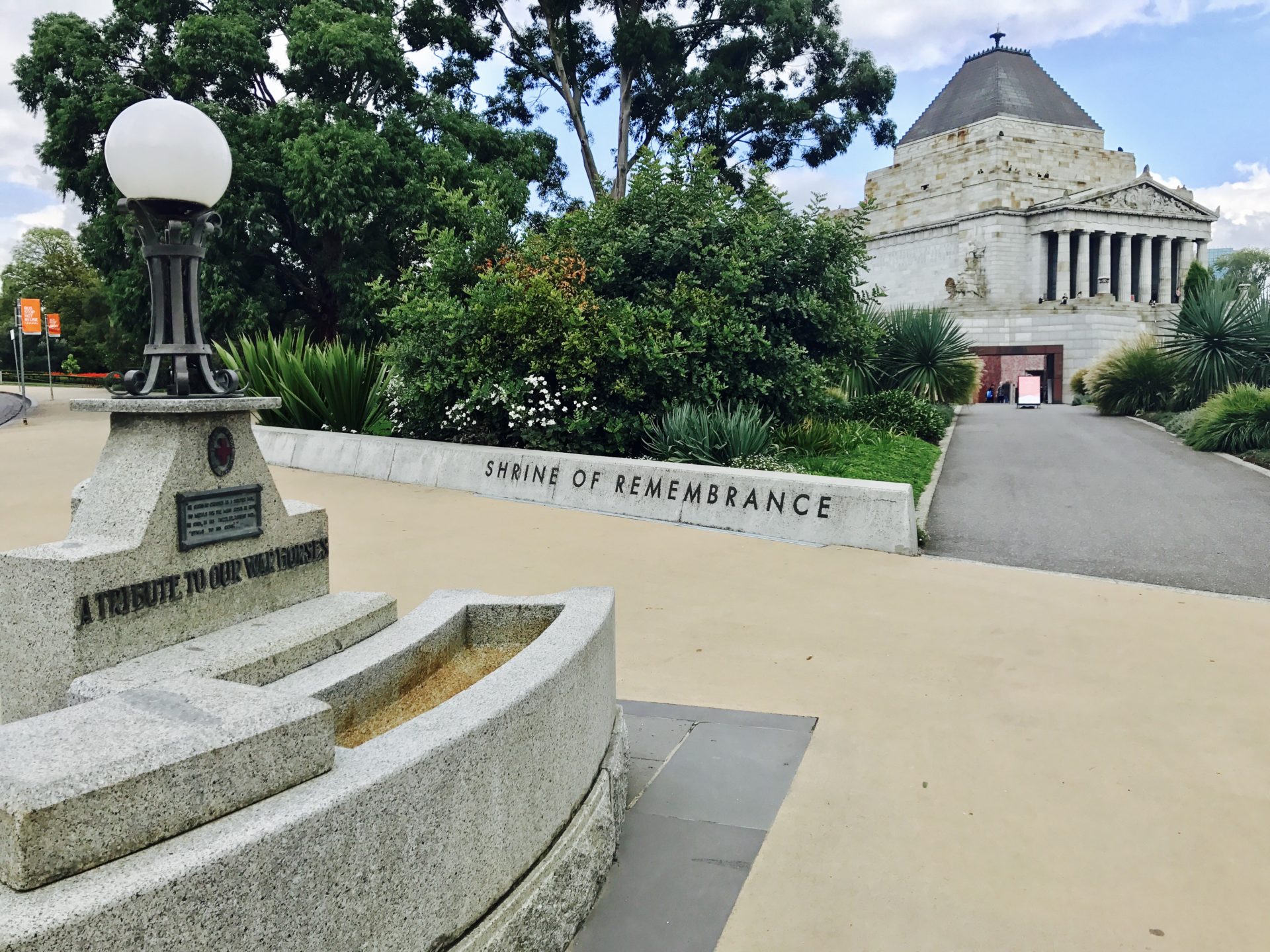호주 멜버른 (4)
>> I came to Australia in 1968.
>> Your name?
>> Brian Edwards, ex-Lance Corporal, Royal Military, please. So I served in Korea from 1951, August, until 1952, August, where I served with the 28th Brigade, and the brigade at that time consisted of the Third Battalion Royal Australia Regiment, and apart from the King's Own Scottish Borderers and one or two other regiments, but the bulk of it was the Australians. That's why I'm affiliated with the Australian branch of Korean vets, so you want me to say something about whatever? Okay. My duty as a military policeman, apart from keeping law and order among the ranks, we have to assign the routes for troop movement, and my job was assigning routes for the 28th Brigade, mainly the Australians, whenever they were moved anywhere, and I had to sign the routes right up to the forward line to make sure they knew where they were going, and then once I'd done my job, then the troops would move in. We normally was the first in with an engineer or signals. The engineers would clear the mines. Signals would establish telephone points, and I used to point the signs down and say this is where this battalion or the second is going, so that's what a military policeman does in war. He's usually the first in and the last out to make sure all the wounded go out and everything is cared for apart from looking after all the roads, making sure all the roads are clear, so it's a big job, but it's good, and it's a rewarding job, and you usually do 3 months in the forward area and 3 months in reserve, but whilst I were in reserve in April '52, I escorted the First Battalion or Australian Regiment to relieve the third battalion, which was in the line, from Incheon. That was just the transport section. The other troops arrived Busan, and then came by road, so it was interesting job. You had to know the roads. You had to keep the roads clear, and you had to keep ammunition and supplies going to the front, and you had to make sure the wounded and/or dead were back behind the lines, so that's what a military policeman does in war, and that's how I was sort of affiliated with the Australians.
>> But you're British.
>> When did you come to Australia?
>> 1968, so I've been in Australia quite a while.
>> Were there other countries that sent their military policemen?
>> Yeah, most countries did, but the British military police was probably the first big one. The Americans did have police there, but they didn't do as much as what the British ones did.
>> You're actually the first military policeman that I have interviewed.
>> There you are.
>> I didn't even know.
>> And we all wore red hats.
>> Can you put it in?
>> All right.
>> Wow. Wow, looks handsome.
>> But it wasn't a hat like this we wore. It was more what we called a cheese-cutter where it had a big down where it had a red top on. I should have brought ... I've still got the red top I had there, but it's got a few holes in it now. Just I remember one time. It was the battle of Maryang-san. That was on the 3rd of October to the 8th. I, as a policeman, assign the route from the 28th of September before we moved the brigade up on the 3rd of October, and it was during that time ... I think ... In that battle, I think 30,000 wounds of shells went in, and I think we took 20,000 back, and that was on a crossroads. There was the enemy there. There was a road to Goheung down there, and there was the British. 29th Brigade was up there at one time, but on the 3rd or 5th of October, I had the bring the 28th Brigade up, so I was the last man. My mission dropped off at various points on the road, and I was the last one on, and I took control of this crossroads, and the shells was coming in at us, and a soldier from there took my into a ditch, and he said, "It's that hat of yours, which they're using as a target," and he was commander of a tank regiment. All the tanks were lined up there, and he was right. The shells were on it. What the hell? Just one cool experience that we came across.
>> Wow.
>> It was exciting. I was 19, and I think my first job when it comes to a large road was to stop a truck going too fast, and I asked him why he'd gotten ... Because he was creating dust, and you can't have dust in the war area, and he said, "I want to know where the graves commission is." He had dead bodies. At 19, it was bit confronting [INAUDIBLE]. There you are, but I'm here and thankful.
